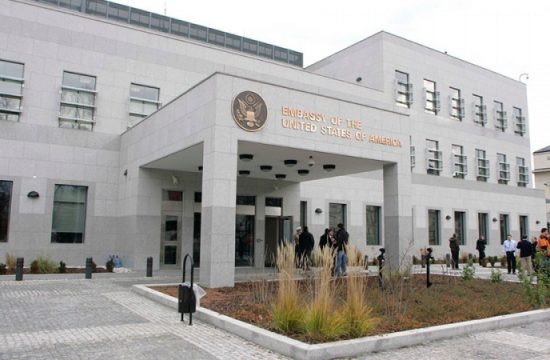Moscow’s goal is to prevent Bosnia from joining NATO and the EU, and Croatia’s foreign policy is a “hostage” of Bosnian Croat leader Dragan Covic, political analysts pointed out in N1’s “Crvena Linija” programme on Friday.
Croatian historian Ivo Banac, Serbian philosopher Djordje Vukadinovic and Bosnian politician Emir Suljagic spoke about relations between the three countries and the roles of their political leaders.
“Covic truly does everything he can to deserve an alliance with (Bosnian Serb leader) Milorad Dodik and Russian patrons, to further destabilize Bosnia,” Banac said.
“Moscow’s goal is to prevent Bosnia from joining NATO and the EU. Zagreb (Croatia’s capital) is a hostage of Covic’s policies. I will not deny that there is some influence coming from Zagreb. Dodik needs to be stopped in what he is doing. Then everything will turn back to normal,” he said.
He referred to an alliance between the Bosnian Croat and the Bosnian leader in Bosnia, who both are working on the disintegration of the country. Dodik advocates an independence of the Bosnian Serb sub-state in Bosnia, while Covic wants to see the country further partitioned into three ethnic-based sub-states.
Right now, Bosnia and Herzegovina consists of a Serb sub-state and one shared by the Bosniaks and Croats. Covic wants a separate Croat sub-state.
Serbian philosopher Djordje Vukadinovic said that Dodik may be the loudest because this is how he gains his political edge. But he added that one has to consider how Bosnian Serbs view the situation in the country.
“Put yourselves into the shoes of Bosnian Serbs. Not only Dodik, but citizens as well. They also have reasons to be upset,” he said, pointing out that in four arms factories operate in the Bosniak-Croat sub-state but none in the Serb.
“Also, there are threats coming from Sarajevo and Zagreb, and we have to show some sensibility to this,” he said.
For Vukadinovic, the role of Dodik and Russia is blown out of proportion.
But Emir Suljagic answered from Sarajevo that the arms factories in the Bosniak-Croat entity exist for 50 years already. They were destroyed during the 1992-1995 war but they were rebuilt again.
“They will keep operating because Bosnia’s citizens have the right to earn their wages. It is well known where each bullet (produced there) ends up and every transaction is transparent,” Suljagic said.
He also spoke about the Bosnian Croat leader, Covic.
“I have the impression that he is the one who decides on the foreign priorities of Zagreb. I made this conclusion based on the propaganda war, the information war Croatian media close to Pantovcak (a neighbourhood where the Croatian Presidential Palace is located in Zagreb) is waging against Bosnia,” he said.
Banac concluded that the entire Balkans area is unstable, which always happens when relations between big powers are not good, and that the unstable situation in the Middle East effects the Balkans as well.



